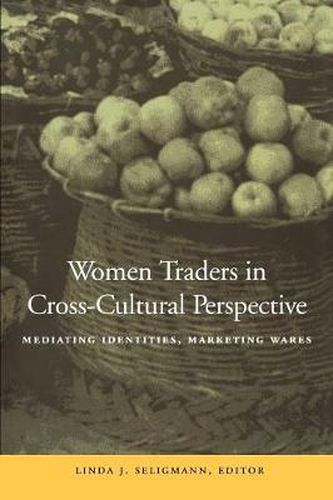Readings Newsletter
Become a Readings Member to make your shopping experience even easier.
Sign in or sign up for free!
You’re not far away from qualifying for FREE standard shipping within Australia
You’ve qualified for FREE standard shipping within Australia
The cart is loading…






This volume studies women as economic, political, and cultural mediators of space, gender, value, and language in informal markets. Drawing on diverse methodologies multisited fieldwork, linguistic analysis, and archival research the contributors demonstrate how women move between and knit together household and marketplace activities. This knitting together pivots on how household practices and economies are translated and transferred to the market, as well as how market practices and economic principles become integral to the nature and construction of the household. Exploring the cultural identities and economic practices of women traders in ten diverse locales Bolivia, Ghana, Hungary, India, Indonesia, Mexico, Morocco, Nicaragua, Peru, and the Philippines the authors pay special attention to the effects of global forces, national economic policies, and nongovernmental organizations on women s participation in the market and the domestic sector. The authors also consider the impact that women s economic and political activities in social movements, public protests, and more hidden kinds of subversive behavior have on state policy, on the attitudes of different sectors of society toward female traders, and on the dynamics of the market itself.
$9.00 standard shipping within Australia
FREE standard shipping within Australia for orders over $100.00
Express & International shipping calculated at checkout
This volume studies women as economic, political, and cultural mediators of space, gender, value, and language in informal markets. Drawing on diverse methodologies multisited fieldwork, linguistic analysis, and archival research the contributors demonstrate how women move between and knit together household and marketplace activities. This knitting together pivots on how household practices and economies are translated and transferred to the market, as well as how market practices and economic principles become integral to the nature and construction of the household. Exploring the cultural identities and economic practices of women traders in ten diverse locales Bolivia, Ghana, Hungary, India, Indonesia, Mexico, Morocco, Nicaragua, Peru, and the Philippines the authors pay special attention to the effects of global forces, national economic policies, and nongovernmental organizations on women s participation in the market and the domestic sector. The authors also consider the impact that women s economic and political activities in social movements, public protests, and more hidden kinds of subversive behavior have on state policy, on the attitudes of different sectors of society toward female traders, and on the dynamics of the market itself.